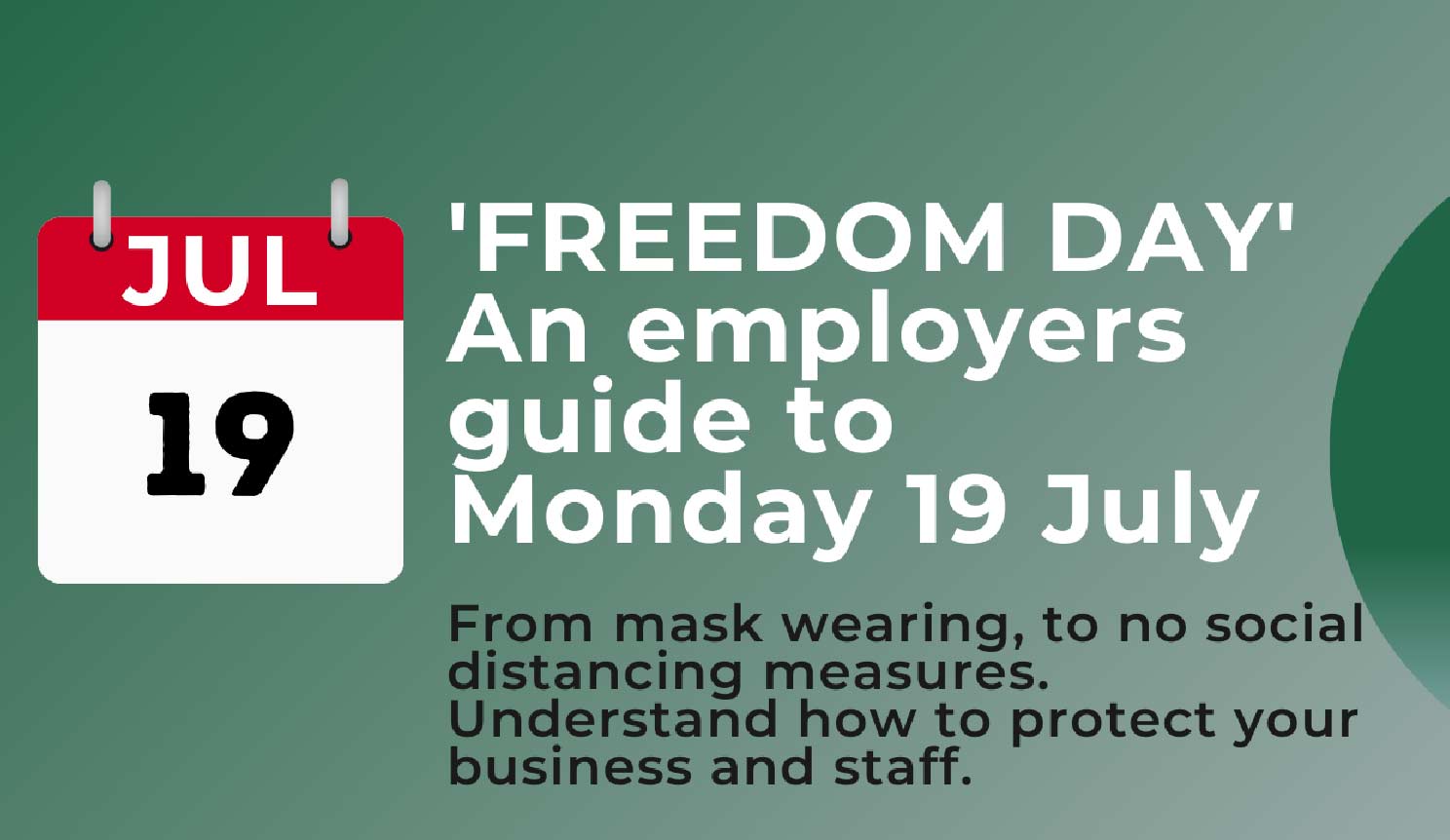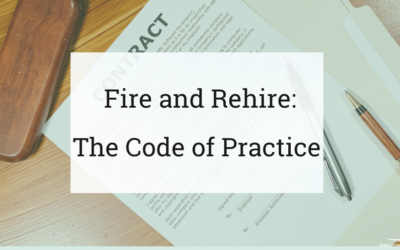England will end all lockdown rules on Monday 19 July, following the Prime Ministers’ announcement on Monday 12 July. This means lifting of the instruction to work from home to no legal requirements to wear a face mask. These new changes will not only impact day-to-day life but will have a detriment to businesses across England and how they operate.
Working from home
There will be no instructions to ‘work from home where possible’ from Monday 19 July. However, businesses still won’t be allowed to require a self-isolating employee to come to work.
It seems to be common knowledge that Covid has reshaped the world of work and we are doubtful that it will return to how it was with sole office working. But now that employees are not legally required to stay at home, they may be keen to return to the workplace. Employers still have a duty of care over their staff and may wish to continue to implement measures which may include, working from home, hybrid working, or working in bubbles, this will simply need a variation to contract if not already in place.
Where an employee wishes to not return to the workplace, and they have 26 weeks of continuous services, they are obligated to complete a formal flexible working request. There are currently only 8 fair reasons to decline a flexible working request, the process for an FWR can be found here.
No legal requirement to wear a face mask
From Monday 19 July there will be no legal requirement to wear a face mask, although it is advised that you do so. Whilst most businesses will have a mask-wearing policy in place, with the law changing, some employees could argue that because they do not have to legally wear a mask into a supermarket now, they shouldn’t have to in the office. Being able to understand ahead of the 19 July how comfortable you as a business and your employees feel regarding this new change is very important. By offering a simple covid questionnaire to your staff with ratings on how they feel regarding the new changes can allow you to make the correct changes.
Don’t forget that compliance with the measures being implemented to protect your staff is considered reasonable management instructions and failure to comply with them could result in disciplinary procedures.
Office coronavirus restrictions- free questionnaire
Understanding how your employees feel about the new coronavirus measures are important to allowing no missed communication upon you and your staff. By using an anonymous questionnaire amongst your workforce ahead of Monday 19 July can allow you to assess which measures you feel comfortable easing/enforcing.
Employment Law solutions have created a free downloadable questionnaire suitable for your employees. This questionnaire asks generic questions relating to the new measures that can be printed and distributed throughout the workforce anonymously.
Can I force my staff to test?
Whilst there is an ongoing consultation in relation to the concept of ‘no jab, no job’ in relation to care workers there is no consultation in relation to testing.
Asking your staff to test themselves regularly (using Lateral Flow Tests) Is certainly a reasonable measure to protect against the risks of coronavirus. Providing you engage with staff and encourage them to test you may not be in a position to mandate it. That being said you may be able to enforce mandatory testing should you wish to do so you should consider this carefully and take advice.
Contacted to isolate
If your employees have been contacted to isolate by the NHS Track and Trace app they are currently obligated to isolate. However, from August 16th, people who are fully vaccinated or under 18 will not have to isolate, provided that there are 2 weeks in between their second vaccination and the contact from Track & Trace. If they test positive for Coronavirus, they will still be legally required to self-isolate. This will allow fewer staff shortages due to track & trace. However, you may still want to put a provision in place if you don’t think this is suitable for your business.
Employment Law Solutions
Employment Law Solutions can help. We are an employment law service offering employment law advice for employers. With a wealth of knowledge in curing HR headaches for employers across the UK, Employment Law Solutions can offer comprehensive, stress-free, and pragmatic advice on employment law, including restrictive covenants, post-termination restrictions, and furlough. We offer 24/7, 365 guidance with a mission to help you get on with doing what you do best – running your business. Protecting your business will always be our main priority.




